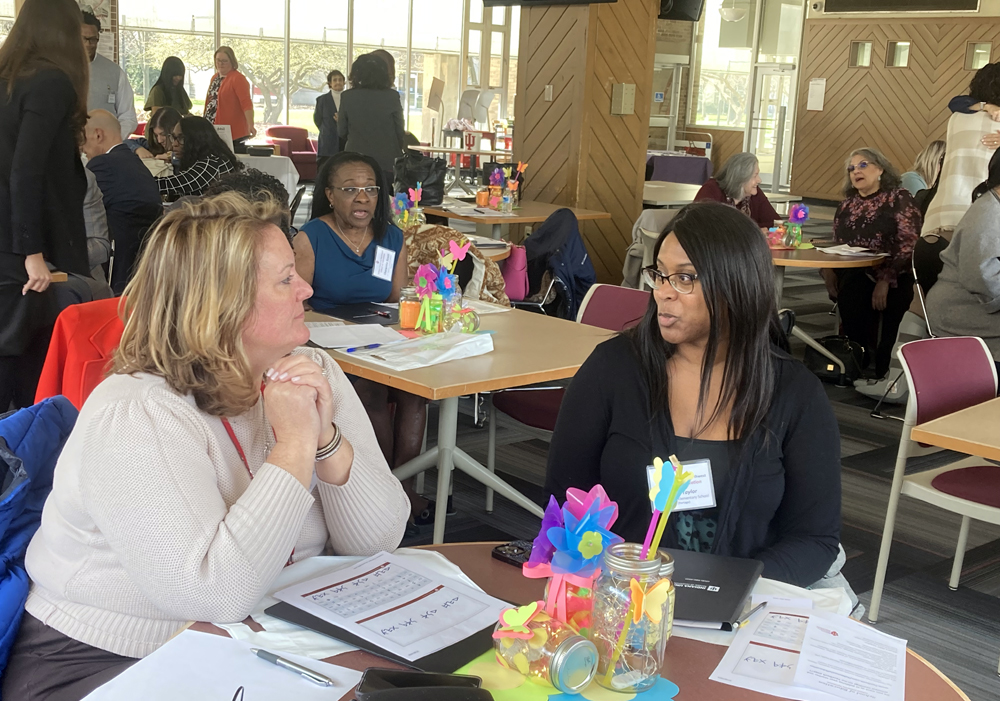
Portage schools' principals Jenna Klein of Jones Elementary School, left, and Taria Taylor of Aylesworth Elementary
IU Northwest getting ready for "science of reading"
Contributed By: The 411 News
Among the strategies used in the "Mississippi Miracle"
Indiana teachers will have to go back to school to learn how to teach reading – that’s the requirement of Indiana’s House Enrolled Act 1558, passed in 2023.
HEA 1558 puts a new emphasis on how children learn to read, with a requirement to add the “science of reading” to school curricula. It was triggered by Indiana’s public education officials who have watched declining reading levels for the states’ elementary students.
Data from the Indiana Dept. of Education show third grade reading levels on the state’s IRead-3 assessment test have been falling since 2013. Reading scores are down from a nearly 87 percent passing rate five years ago and a 91 percent passing rate ten years ago.
In 2023, Indiana’s IRead-3 passing rate was 82%.
Last week, the School of Education at Indiana University Northwest hosted their annual Northwest Indiana School Principals’ Luncheon, inviting all school principals in Lake, Porter and LaPorte counties. The theme was “The Science and Celebration of Reading.”
More than 30 states have passed science of reading laws. They have paid off in what is called the “Mississippi Miracle.” Training their teachers in the science of reading was among the strategies Mississippi used to move 4th grade reading levels, over a 10-year period, from last to 21st in the nation.
The luncheon’s keynote speaker Suzanne Thomson, from the IU Office of School Partnerships, is managing the efforts that will change the way the university trains its teachers so they can meet the educational standards required by the new law.
Thomson compared how children learn to speak and how they learn to read.
Speech is easy for children to learn, Thomson explained. There are so many cues, from parents and siblings. It’s natural; our brains are hardwired for speech. Children say words without knowing what they mean.
“The science of reading tells how our brains process language that is in print. It takes more than one part of our brain to process what is on the page,” Thomson said.
There is a visual part of the brain that recognizes the symbols, the alphabet on the page. Another part processes the sounds of the symbols; and another part processes the meaning of the symbols.
Learning to read takes connecting all those parts of the brain.
“Looking at scans of the brain, all those sections light up for efficient readers. For struggling or inefficient readers, they don’t have those connections. What we have to do is find out what students need to help build those connections,” Thomson said.
IU Northwest Associate Professor of Education Susan Pratt said, “The law confirms that the science of reading works for the majority of students.”
Beginning in April, the Indiana Dept. of Education will give teachers a $1200 stipend for training in the science of reading. By 2027, teachers whose content area involves literacy instruction (grades PK-5 and Special Education) must meet the criteria for a literacy endorsement.
The law requires schools to adopt the science of reading by the start of the 2024-25 school year.
Public schools with fewer than 70% passing IRead-3 must use an approved curriculum. For all other public and charter schools, implementation requirements begin in the 2025-26 school year.
The law requires every school to post on its website, the name and publisher of adopted reading and writer curricula by grade level. The school must also show on its website information on remedial programs by grade level. And the information must include the name of an administrative contact person.
Jessica Acklin is the principal of Merrillville’s Higher Institute of Arts & Technology, a K-8 charter school. Acklin said her school’s IRead-3 passing level was below 70%. “We are already pushing our teachers to go back and get their reading endorsement. Our goal is to raise reading levels by 10% every year. Getting to the state level won’t happen overnight. With the right tools for our teachers and scholars, we’ll get there.”
Story Posted:03/25/2024
|